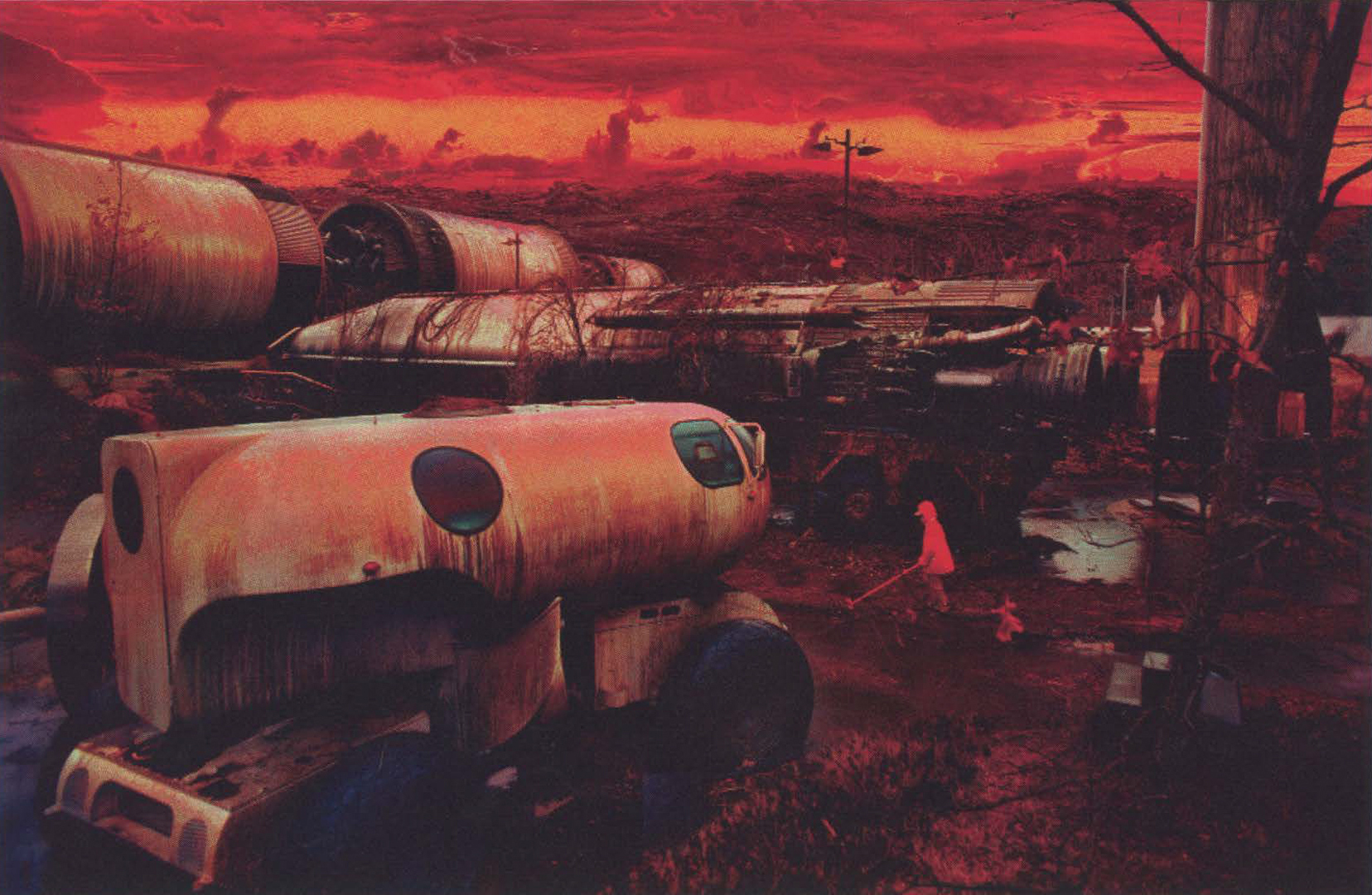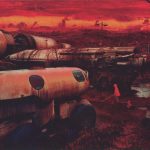Wilson North: The Children Shall Inherit the Earth
Artist(s):
Title:
- The Children Shall Inherit the Earth
Exhibition:
Creation Year:
- 2003
Size:
- 20 in x 24 in
Category:
Artist Statement:
I have always loved to hunt with a camera, using perception and intuition in an attempt to see beyond appearances into minute cracks in the hard concrete of reality that reveal little ironies, odd juxtapositions, and hidden truths. A favorite hunting ground is the fault zone along the nexus of culture and nature where balance is attained or sacrificed. Following intuition often leads to discoveries that further spark the imagination. Consequently, I’ve often found myself wanting to continue beyond the definitive moment of the single image to construct further comments, ferret out incongruities, and develop new histories. This desire to extend the captured moment led me to work with alternate darkroom techniques and slide sandwiching in the 1960s, multiple-enlarger printing and slide-duplication techniques in the early 1970s, and slide animation-stand imaging from the late 70s into the 80s. By the early 90s, the digital darkroom of the computer became a precise and powerful tool to enhance imagery and seamlessly edit composite parts into a whole. This allows me to work within the image to synthesize backgrounds and parts from a variety of sources.
The computer’s electronic darkroom has made imagery paintable, distortable, and so precisely compositable that photographic reality will never be the same. I believe that this ability to continue to exercise the visual imagination, to expand the narration of the story, is the digital world’s key gift to photography and creates a paradigm shift into a new modus operandi for photography. From 1/2000 of a second in a camera, an image can be given directional changes for years through the computer. Within the old paradigm, photographers are seeing and sensing the things they are after, but with the digital construction paradigm, they are imagining and orchestrating the scene they are after. Now a series of moments excised from the flow of time can be arranged for development of the artist’s fiction. A narrative develops that arranges, connects, and comments on the moments utilizing changed or added objects as well as changed or added actions and reactions by the “cast.”
My work bridges the perception of the hunt with the conception of construction. The production of this kind of imagery is run by internal timelines, guided by personal concerns, formed by the imagination, and it leads to creation of images not quite seen before.






